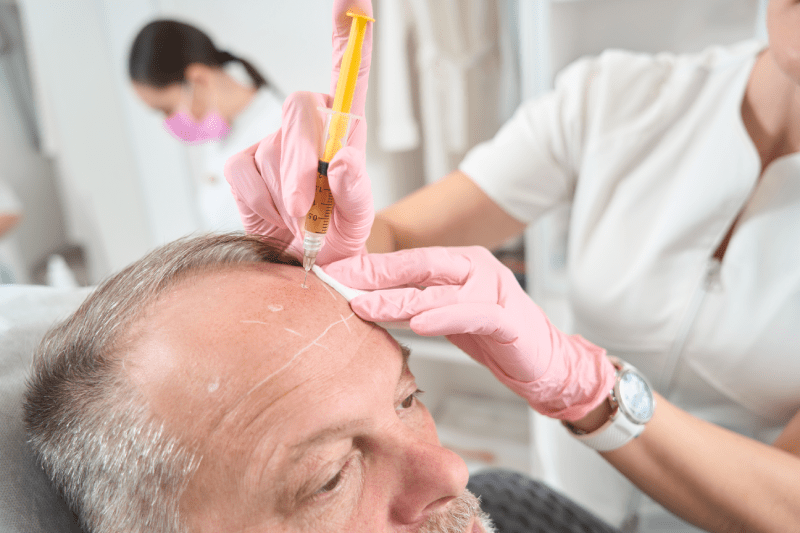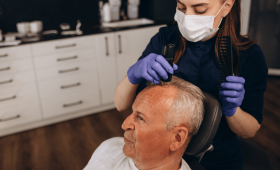What Is The Secret To Istanbul’s Worldwide Success In Hair Transplantation?
The foundation of Istanbul’s worldwide success in hair transplantation lies in the experience and specialization gained from its high volume of cases. This intense caseload ensures that surgical teams constantly manage the most complex and challenging cases, honing their technical skills to the highest level. Furthermore, the advantageous position of the Turkish Lira against international exchange rates makes it possible to offer high-quality service at costs significantly lower than European prices. Government incentives for health tourism and modern hospital infrastructure are also critical factors supporting this success. Consequently, patients find the best option in Istanbul, both economically and in terms of expert knowledge.
Which Criteria Are Important For Clinic Selection For High-Quality Hair Transplantation?
The most critical criterion to consider when selecting a clinic for a high-quality hair transplant experience is that the operation must be performed in a fully equipped hospital environment under the supervision of an experienced surgical team. It is essential to check whether the clinics possess international accreditations (like JCI) and if the hygiene standards are maintained at the highest level. Furthermore, the use of up-to-date technologies (such as Sapphire FUE, DHI) and the quality and naturalness of the surgeon’s previous operations are also determining factors. Packages that offer logistical support like travel planning, accommodation, and transfers are integral parts of ensuring the best overall experience.
Which Techniques Are The Best Hair Transplant Specialists Experienced In?
The best hair transplant specialists in Istanbul are not confined to a single technique but are those who can be flexible according to the patient’s needs and have profound experience in both Follicular Unit Extraction (FUE) and Direct Hair Implantation (DHI) techniques. FUE is effective for providing density in large areas, while DHI offers the ability to perform high-density implantation among existing hairs in smaller, targeted areas. Innovative tools used by these specialists, such as Sapphire FUE, also minimize damage to the tissue, thus enhancing the quality of healing. This technical diversity guarantees the most natural and personalized result for each patient’s specific condition.
How Is The Most Natural-Looking Hairline Designed In Istanbul?
Designing the most natural-looking hairline represents the artistic aspect of hair transplantation and is directly related to the surgeon’s experience. Specialists draw a personalized line by considering the patient’s age, facial features, movement of the forehead muscles, and potential future hair loss pattern. To ensure naturalness, single grafts are used in the frontal line, and the hairline is designed with a slightly irregular (zig-zag), gradual transition. Moreover, maintaining the natural angles and directions of the transplanted hairs is vital to prevent an artificial appearance when the hair is styled or grown out.
How Is The Best Balance Between Hair Transplant Prices And Quality Established?
Establishing the best balance between hair transplant prices and quality requires thorough research and comparison. Thanks to high competition, Istanbul offers the opportunity to work with equally high-quality, or even more experienced, teams at prices significantly below the costs in Europe and the UK. Instead of aiming for the lowest price, it is crucial to focus on the quality of auxiliary services, such as the operation being performed in a hospital setting, and the package including accommodation and transfers. Working with reputable agencies like Cure Holiday can help you find the optimal balance between price transparency and quality control.
What Is The Scope Of Luxury Hair Transplant Packages In Istanbul?
Luxury hair transplant packages in Istanbul offer a “turnkey” service that covers the patient’s entire treatment and travel process. These packages typically include the full operation fee, luxury hotel accommodation covering the days before and after the procedure, all private transfers from the airport and hotel to the clinic, post-operative medications, specialized shampoos, lotions, and interpreter services. This comprehensive coverage allows international patients to focus solely on recovery without dealing with logistics, ensuring they experience the most comfortable journey possible during their treatment period.
How Is The Required Number Of Grafts Determined For The Most Successful Results?
The required number of grafts for the most successful and natural results is determined by an in-depth preliminary analysis performed by an expert team. This analysis assesses the patient’s baldness degree (using the Norwood scale), calculates the size of the recipient area, and defines the desired density. Furthermore, the existing root density of the donor area and the potential risk of future hair loss are taken into account. The goal is to ensure both sufficient density in the frontal line and to leave a reserve for a potential second transplant in the future, without damaging the donor area. This precise calculation ensures the outcome is both aesthetic and sustainable.
Which Steps Must Be Taken During The Best Post-Hair Transplant Recovery Process?
The first 15 days are critically important for ensuring the best post-hair transplant recovery process. During this period, the head must be kept elevated for the first 48 hours while sleeping, anti-swelling medications prescribed by the doctor must be used regularly, and the transplanted area must be strictly protected from friction. Sun exposure, strenuous exercise, and sweating should be avoided. After the first wash, gently cleaning the scabs and consistently using the specialized shampoos and lotions recommended by the doctor are the most crucial steps to ensure the healthy survival of the grafts.
What Is The Satisfaction Rate Of International Patients Who Undergo Hair Transplantation In Istanbul?
The satisfaction rate of international patients choosing Istanbul is generally significantly above the industry average. This high satisfaction is based on the natural and dense results achieved, the luxurious and comfortable travel packages provided during the operation process, and the interest and hospitality shown by the medical staff. Many patients state that the quality of service they received in Istanbul exceeded their expectations, contrary to the high costs they would face in Europe. A key indicator of this high satisfaction is the high rate at which patients recommend this experience to their acquaintances.
What Do Istanbul Clinics Use For The Highest Graft Survival Rate?
Ensuring the highest graft survival rate is a priority for quality clinics in Istanbul, and they use a range of advanced practices for this purpose. These include the DHI technique, which minimizes the time grafts spend outside the body, hypothermia solutions that nourish the roots, and PRP (Platelet-Rich Plasma) treatment applied after implantation to accelerate healing. Furthermore, the meticulous and minimally invasive opening of implantation channels with sapphire tips significantly contributes to the healthy placement and higher survival rate of the follicles.
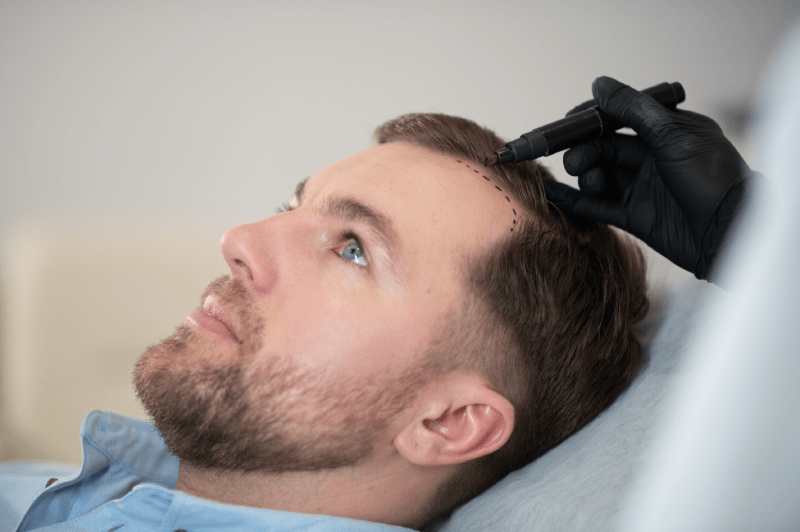
Why Are Pre-Hair Transplant Blood Tests Crucial For The Best Results?
Blood tests performed before a hair transplant evaluate not only infection risks but also crucial health indicators that can affect the overall success of the operation. These tests control the patient’s blood clotting time, preventing excessive bleeding or clotting issues during the procedure. Additionally, chronic diseases or infectious diseases (HIV, Hepatitis) that could pose a risk under anesthesia are identified. This vital preliminary check guarantees that the operation is performed under the safest and healthiest conditions, ensuring the safety of both the patient and the surgical team.
Which Anesthesia Methods Are Used For The Most Comfortable Hair Transplant Experience?
The best clinics in Istanbul use local anesthesia followed by sedation or needle-free anesthesia methods to maximize patient comfort. Local anesthesia completely eliminates the sensation of pain during the operation, while sedation creates a mild state of calmness, reducing the patient’s stress and anxiety, thus allowing them to relax throughout the lengthy procedure. Some centers aim to eliminate even the slight sting felt at the start of anesthesia by using needle-free injection devices. These methods make the hair transplant experience almost entirely painless and highly comfortable for the patient.
How Many Hours Should The Operation Last To Achieve The Best Result?
To achieve the best and most meticulous results, hair transplant operations, depending on the number of grafts, should generally last between 6 to 8 hours. This long duration is necessary to ensure that each hair follicle is harvested from the donor area without damage and implanted into the recipient area at the correct angle, direction, and density, without rushing. A quality center provides adequate rest and meal breaks during the operation for the patient’s comfort. It should be noted that short-duration operations can often indicate a compromise on quality or insufficient graft implantation.
How Is Donor Area Evaluation Performed For High-Quality Hair Transplantation?
Donor area evaluation is the most critical initial step of the operation and requires specialized expertise for a high-quality hair transplant. This evaluation determines the density, thickness, quality of the roots, and the ratio of grafts containing multiple follicles in the donor area. Experts calculate the maximum number of grafts that will meet the current transplantation need while leaving no noticeable thinning in the donor area in the future, ensuring a reserve for a potential second transplant. A successful evaluation ensures the sustainability of the donor area and the longevity of the results.
What Post-Operative Care Support Do The Best Clinics Provide?
The post-operative care support offered by the best clinics in Istanbul is not limited to just the first wash but provides the patient with a comprehensive follow-up process. This support includes a 24/7 accessible personal consultant or communication line for the first 12 months after the operation. Furthermore, regular photo or video follow-ups are performed during the scabbing process, shock loss, and initial hair growth stages. Patients are also provided with detailed written and visual care instructions to manage their recovery optimally, even after returning abroad.
Which Medications Ensure The Best Recovery After Hair Transplantation?
To ensure the best recovery after a hair transplant, a standard medication kit is provided, typically containing antibiotics, painkillers, and anti-swelling (anti-edema) medications. The antibiotic is used to completely eliminate the risk of infection. Additionally, supplements critical for hair health, such as Biotin, Zinc, and Iron, may be recommended by the doctor to support healing and improve hair quality. All these medications and supplements must be strictly used according to the dosage and duration determined by the doctor.
Which Season Should Be Preferred For The Best Hair Transplant?
For the best hair transplant experience in Istanbul, spring (April-May) or autumn (September-October) are the ideal seasons. During these periods, air temperatures are mild, reducing the likelihood of excessive sweating, which is one of the biggest risk factors after the operation. Furthermore, the sun’s rays are not as intense as during the summer months, which slightly eases the necessity of sun protection. Regardless of the season, meticulous adherence to the doctor’s instructions regarding sun protection and hygiene is paramount for achieving the best results.
When Do The Most Successful Hair Transplant Results Start To Become Visible In Istanbul?
The most successful hair transplant results achieved in Istanbul reach full maturity between 12 and 18 months after the operation. The first noticeable results usually begin to emerge around the 6th month; by this time, a large portion of the transplanted hair has grown, and significant density has been achieved. The hair strands continue to thicken, strengthen, and acquire their natural structure until the 12th to 18th month. This process requires patience, and the most aesthetic and permanent results are attained with the completion of the natural cycle of the transplanted roots.
How Is The Shock Loss Period Best Managed After Hair Transplantation?
The shock loss period after a hair transplant does not signify failure but is the beginning of a new hair cycle, usually occurring between the 2nd and 8th weeks. The best way to manage this process is to remain calm and know that it is an expected part of the recovery. Regularly using the nutritional supplements (Biotin, etc.) recommended by the doctor, massaging the scalp to increase blood circulation, and maintaining a healthy diet support the process. After the shock loss, the roots enter a resting phase, and the permanent hairs begin to grow within 3-4 months.
How Should Hair Washing Be Performed After The Best Hair Transplant?
Hair washing after the best hair transplant must be done with extreme sensitivity and gentleness to avoid damaging the implanted grafts. After the first wash is professionally done at the clinic, the patient must strictly follow the at-home washing instructions. During washing, a special lotion is left on the transplant area for a while to soften the scabs. Then, using low-pressure, lukewarm water, rinsing is performed with gentle dabbing movements, using only the soft pads of the fingertips on the transplanted area. It is absolutely forbidden to scratch with fingernails or rub, as this could jeopardize the survival rate of the grafts.
How Is Swelling And Edema Minimized After High-Quality Hair Transplantation?
Actions taken during the first 48 hours are critical to minimizing swelling and edema after a high-quality hair transplant. Clinics use special anti-swelling (anti-edema) medications for this purpose. The most important thing the patient must do is to sleep with their head elevated (at a 45-degree incline) for the first two nights. This position prevents the fluid from descending to the sensitive areas like the forehead and eye area due to gravity. Applying a cold compress to the forehead (without touching the transplanted area) can also help resolve the edema. These simple precautions shorten the duration of swelling and increase recovery comfort.
How Should Nutrition Be After Hair Transplantation For The Best Result?
Nutrition after a hair transplant for the best result should be planned to support the strengthening and healthy growth of the roots. Protein (fish, eggs, lean meat) should be consumed in high amounts as it is the basic building block of hair. Furthermore, foods rich in Zinc, Iron, Vitamins A, C, and B (especially Biotin), which are necessary for hair health, should be prioritized (green vegetables, dried fruits). Drinking plenty of water is also vital as it supports blood circulation and the nourishment of the hair roots.
What Is The Most Effective Method For Sun Protection After Hair Transplantation?
The most effective method for sun protection after a hair transplant, especially for the first one month, is to completely avoid direct sun exposure. If you must go out in the sun, a loose and airy hat (preferably a surgical hat or bucket hat, not a baseball cap) that does not press on the scalp should be worn. Sunlight can both damage the newly transplanted roots and cause permanent discoloration (hyperpigmentation) on the scalp. Sunscreen should not be applied to the transplanted area in the initial months without the doctor’s approval.
When Can Exercise Be Started After The Best Hair Transplant?
The time to start exercising after the best hair transplant depends on the intensity of the activity. Light-paced walking and non-sweating activities can be resumed after one week. However, strenuous sports that cause pressure on the scalp, excessive sweating, or risk of impact, such as heavy lifting, cardio, or swimming, must be avoided for at least one month. Excessive sweating can increase the risk of infection, and strenuous movements can cause the newly settled grafts to become dislodged.
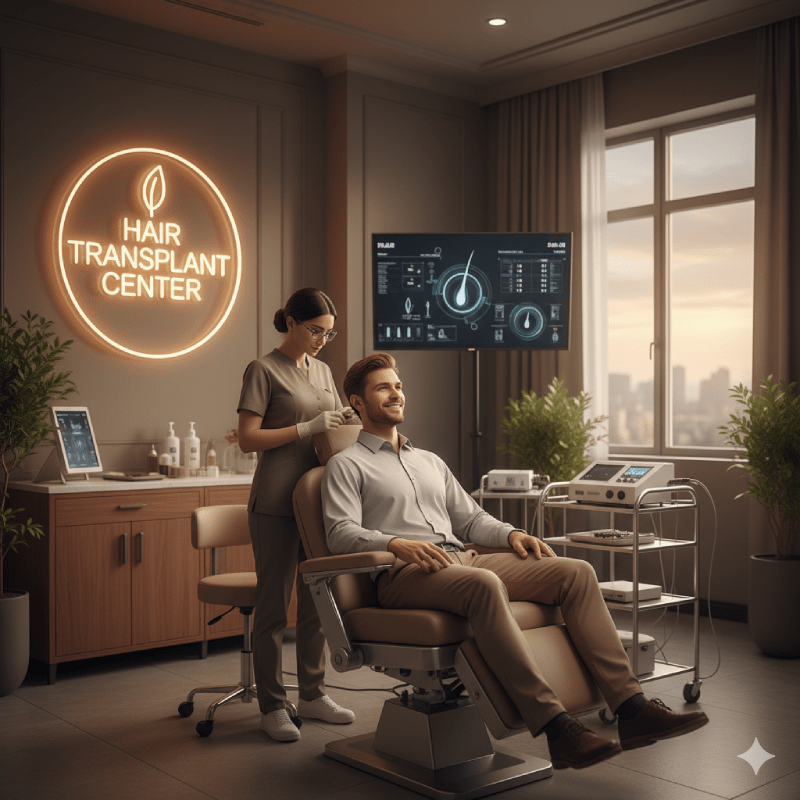
Which Supplements Support The Best Hair Quality After Hair Transplantation?
The supplements that support the best hair quality after a hair transplant are generally those directly related to the hair growth cycle and structure. At the forefront of these supplements is Biotin (Vitamin B7), which supports hair to grow faster and thicken. Additionally, Zinc, which plays an important role in stem cell regeneration, Iron, which supports blood circulation and carries oxygen to the hair roots, and various amino acids and B-complex vitamins that support the production of Keratin, the main protein structure of hair, may be recommended. All supplements must be started under the doctor’s supervision.
Which Is More Suitable In Istanbul For The Best Results: DHI Or FUE?
There is no single answer to the question of whether DHI (Direct Hair Implantation) or FUE (Follicular Unit Extraction) is more suitable for the best results in Istanbul; the best outcome depends on the patient’s specific situation. FUE generally provides fast and effective density in large areas, while DHI is ideal for non-shaven transplants or implanting higher density among existing hairs. Experts will assess your hair loss level, donor area quality, and desired density to select the technique that will yield the most natural and successful result for you.
What Is The Single Hair Transplant Technique That Yields The Best Results?
It is not correct to generalize with the statement “the single hair transplant technique that yields the best results”; success depends more on expertise and quality of application than the technique itself. However, modern techniques like Sapphire FUE and DHI provide faster recovery and higher natural density as they are more minimally invasive. Sapphire FUE reduces tissue trauma through precise channel opening, while DHI increases the survival rate by shortening the time grafts remain outside the body. The best technique is the one the surgeon is experienced in and the one most suitable for your hair type.
What Is The Most Suitable Time For A Haircut After Hair Transplantation?
The most suitable time for a haircut after a hair transplant is when the transplanted roots have fully settled and the scalp has healed. Waiting one month after the operation is generally sufficient and safe for cutting with scissors, as this is a gentle process. However, waiting at least three to six months is strongly advised for cutting with tools that directly contact the scalp and create vibration, such as clippers, razors, or blades. This is the safest step to protect the newly emerging and strengthening hair follicles.
When Should Alcohol And Smoking Be Quit For High-Quality Hair Transplantation?
To achieve high-quality hair transplant results, alcohol and smoking consumption must be stopped at least one week before the operation and strictly avoided for at least 10-15 days after the operation. Smoking, due to the nicotine it contains, significantly restricts the flow of oxygen and nutrients to the hair roots by constricting blood vessels, which reduces the graft survival rate. Alcohol, with its blood-thinning effect, increases the risk of bleeding and edema. Clean blood circulation during this period is vital for graft health.
Does Permanent Scarring Remain After The Best Hair Transplant Results?
The best hair transplant results offer scarless or micro-scarred healing. Modern techniques like FUE and DHI, applied in quality clinics in Istanbul, do not leave a noticeable, linear scar because no scalpel is used. The scars remaining in the donor area are only small, round dots with a diameter of 0.6-1.0 mm. These dots are completely concealed when the surrounding hair grows out and are almost impossible to notice with the naked eye. This minimally invasive approach preserves the patient’s freedom to use short hairstyles.
How Many Years Of Guarantee Do The Best Clinics In Istanbul Provide?
The best and most reliable hair transplant clinics in Istanbul generally offer a lifetime guarantee for the permanence of the transplanted hair or a guarantee for a graft survival rate above a certain percentage (usually 90-98%). This guarantee is based on the scientific fact that the transplanted hair is genetically resistant to shedding. The clinic’s official guarantee certificate is issued to the patient and is usually conditional on the patient strictly following all of the doctor’s post-operative instructions. Contacting Cure Holiday is the best step to get detailed information about the duration and scope of the warranty.
Can A Repeat Hair Transplant Be Performed To Achieve The Best Result?
Yes, a repeat hair transplant can be performed to achieve the best result and complete the desired density, but this decision must be made after an expert evaluation. The most important condition for a second session is that there are still enough quality and healthy roots available in the donor area. Furthermore, it is generally recommended to wait at least 12 months after the first operation to allow the donor and recipient areas to fully heal. Repeat transplantation is usually performed to make minor corrections to the hairline or increase density in the crown area.
How Long Is The Safest Period For Sexual Intercourse After Hair Transplantation?
The safest period for sexual intercourse after a hair transplant begins after the initial period required for the transplanted grafts to fully settle and anchor into the scalp. Clinics in Istanbul generally recommend strictly avoiding sexual activity for the first 7 to 10 days following the operation. Increased blood pressure and sweating during this time can damage the newly implanted grafts or raise the risk of infection. After this critical period, normal life can be resumed, taking care to avoid physical contact with the head.
How Are The Best Accommodation And Transfer Services Provided For Patients Coming From Abroad?
The best accommodation and transfer services for patients coming from abroad are provided within a fully organized “health tourism package.” This includes the patients being met at the airport by private chauffeur-driven vehicles, being hosted in four or five-star luxury hotels located close to the clinic, and being transferred on time for all clinical appointments. These services completely eliminate travel stress and allow the patient to focus solely on recovery without the worry of getting lost in a foreign city. Cure Holiday is a specialist in providing such seamless logistics.
Which Preparations Should Be Made Before Hair Transplantation For The Best Results?
There are preparations that must be meticulously made before a hair transplant for the best results. It is mandatory to stop using blood thinners (aspirin, certain vitamins) and herbal supplements at least one week before the operation. Likewise, alcohol and smoking consumption must be stopped. On the day of the operation, hair must be clean, and styling products like gel or spray should never be used. Additionally, reducing caffeine intake and getting a good night’s sleep before the operation are important preparations for a comfortable experience.
How Is Interpreter Support Provided For The Best Hair Transplant Experience?
In Istanbul’s clinics offering services at international standards, comprehensive interpreting support is provided to prevent communication gaps during the treatment process for patients arriving from abroad. This support covers every stage, from the patient’s airport reception, consultation, and operation process, to even the first wash instructions. Interpreters not only translate the language but also accurately convey the patient’s cultural expectations and medical concerns to the surgical team, which helps personalize the treatment and ensures a comfortable experience.
How Is Post-Hair Transplant Itching Best Controlled?
Post-hair transplant itching is a normal side effect of the healing and scabbing process, but it is critical to control it. The best method to control itching is to strictly avoid scratching the transplanted area and to use the moisturizing lotions or special sprays recommended by the doctor. If the itching sensation is very intense, mild antihistamine medications prescribed by the doctor can be used. Preventing scratching is essential to prevent damage to the newly settled grafts and reduce the risk of infection.
How Old Should One Be For The Best Hair Transplant?
The ideal age range for the best hair transplant is generally considered to be 25 to 65. This age range represents a period when the hair loss pattern is largely stabilized. If hair loss is still active in individuals under 25, an early transplant might result in continued shedding in un-implanted areas, leading to an unnatural appearance later on. For this reason, experts recommend waiting for the hair loss pattern to clarify and the donor area to show its full potential.
What Are The Hair Transplant Warranty Conditions In Istanbul?
The hair transplant warranty conditions offered by reliable clinics in Istanbul usually include: providing a free revision or supplementary session if the transplanted hair follicles do not grow out at a certain rate (generally 90% and above). However, this warranty is contingent upon the patient strictly adhering to all post-operative care and medication usage instructions provided by the doctor. The warranty typically covers the permanence of the roots (their resistance to shedding) for a lifetime but does not cover the possibility of new hair loss occurring in non-transplanted areas.
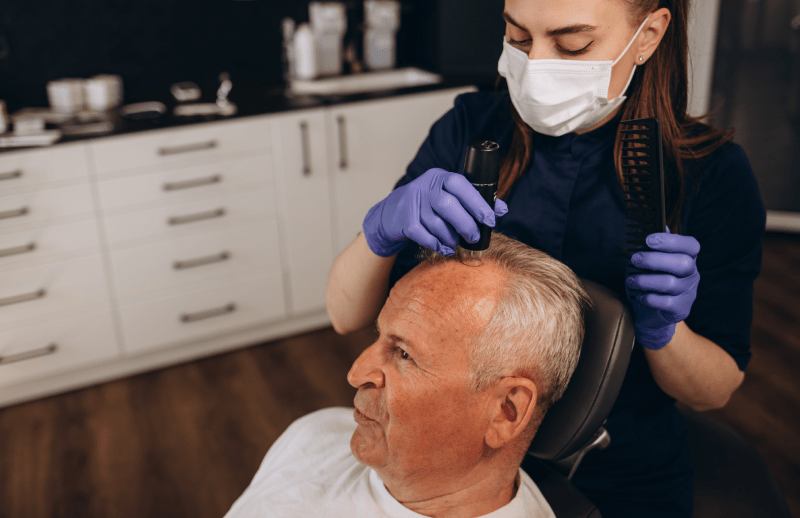
Which Hair Products Should Be Avoided After The Best Hair Transplant?
Products that should definitely be avoided in the first few months after the best hair transplant include shampoos, hair sprays, gels, and mousses containing parabens, alcohol, or harsh chemicals. Such chemically-laden products can irritate the sensitized scalp, slow down the healing process, and even increase the risk of infection. It is recommended to use only the low-pH, hypoallergenic, and neutral shampoos provided or recommended by the clinic for the first few months. Chemical procedures like hair dyeing or perming should be postponed for at least six months.
How Many Times Are Check-Ups And Follow-Ups Required After Hair Transplantation?
After a quality hair transplant in Istanbul, multiple check-ups and follow-ups are required for a successful result. The first check-up is with the first wash (usually on the 3rd day) after the operation. Subsequently, for patients returning abroad, remote follow-up is conducted regularly via photo or video submissions at 1-month, 3-month, 6-month, and 12-month intervals. These regular check-ups allow the surgical team to closely monitor the healing process, detect potential problems early, and ensure the patient is applying the correct care at every stage.
Can Hair Transplantation Be Done While Shedding Continues For The Best Result?
No, hair transplantation is generally not recommended while active and ongoing hair shedding continues for the best results and long-term naturalness. Specialists prefer to wait for the hair loss pattern to become largely stabilized. Otherwise, the existing hair right behind the transplanted area may continue to shed, creating an “island” appearance while the transplanted hair remains in place, which leads to an unnatural outcome. The shedding must be controlled or slowed down before planning the transplantation.
This detailed guide provides all the information necessary for you to achieve the best hair transplant experience in Istanbul. Although Istanbul stands out as a center for quality and affordable prices, the organization of travel and treatment must be planned meticulously.
You can confidently contact Cure Holiday for professional support in creating your personalized best treatment plan, as well as for accommodation, transfers, and the management of the entire process. They will guide you through your most comfortable and successful hair transplant journey.
